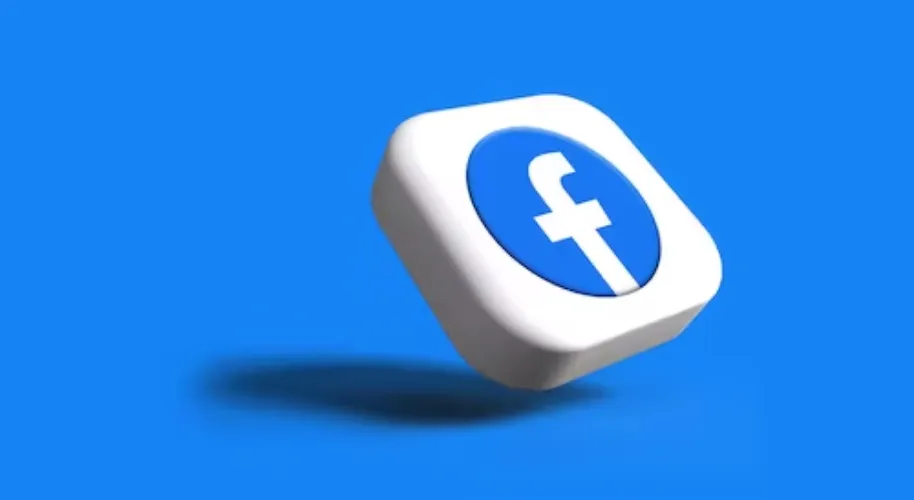- Company: Facebook, Inc
- CEO: Mark Zuckerberg
- Year founded: 2004
- Headquarter: Menlo Park, California, USA
- Number of Employees (June 2020): 52,534
- Public or Private: Public
- Ticker Symbol: FB
- Market Cap (Nov 2020): $786.63 Billion
- Annual Revenue (2019): $70.697 Billion
- Profit |Net income (2019): $18.485 Billion
Dev Technosys offers expert dedicated developers under a flexible Time and Material model to turn your vision into powerful, scalable digital solutions
Step into the realm of Facebook, where social interactions and digital landscapes converge to create an unparalleled Facebook business model that has left an indelible mark on the modern world. In this captivating blog, we journeyed through the intricacies of Facebook business model, a blueprint that has propelled the company to unimaginable heights. From its humble origins in a Harvard dorm room to becoming a global phenomenon, Facebook has revolutionized how we connect, share, and engage with each other.
Join us as we unravel the intricate layers of this social media behemoth, exploring its innovative monetization strategies, the power of data, and the impact it has had on society. Get ready to uncover the secrets behind Facebook's dominance and the fascinating story of its evolution.
Facebook: A Brief History
Facebook, a renowned social media platform, was established by Mark Zuckerberg and his college companions Eduardo Saverin, Andrew McCollum, Dustin Moskovitz, and Chris Hughes. The platform was launched on February 4, 2004, under the name "Thefacebook," initially catering exclusively to students at Harvard University. It swiftly expanded its reach to encompass other Ivy League universities and gradually extended its services to college students across the United States and Canada.
In 2005, Facebook introduced high school networks, enabling students from different high schools to join the platform. During the same year, the company simplified its name to "Facebook" and welcomed individuals above the age of 13 with a valid email address.
Facebook experienced remarkable growth in the subsequent years, attracting millions of users and garnering the attention of investors. In 2008, the platform achieved 100 million active users, and by 2012, it surpassed an astounding 1 billion users worldwide.
The success of Facebook business model persisted through various advancements and acquisitions. In 2010, the company launched its mobile app, granting users access to the platform via smartphones and tablets. The acquisition of Instagram, a popular photo-sharing app, took place in 2012, followed by the acquisition of WhatsApp, a messaging app, in 2014. These acquisitions significantly broadened Facebook's reach and user base.
In 2012, Facebook became a publicly traded company through its initial public offering (IPO), generating billions of dollars in capital. However, the company encountered challenges concerning user privacy and data security. In 2018, it was unveiled that the personal data of millions of Facebook users had been inappropriately obtained by the political consulting firm Cambridge Analytica, leading to public outrage and regulatory scrutiny.
Top Services Owned By Facebook
| Service | Description | Downloads (as of 2021) | Value (estimated) |
|---|---|---|---|
| Social networking platform for connecting people | 2.8 billion | $880 billion | |
| Photo and video sharing platform | 1 billion | $100 billion | |
| Messaging app with voice and video calling features | 2 billion | $65 billion | |
| Messenger | Instant messaging platform | 1.3 billion | $50 billion |
| Oculus VR | Virtual reality hardware and software | N/A | Acquired for $2.3 billion in 2014 |
| Workplace by Facebook | Business communication and collaboration platform | 7 million | N/A |
-
Facebook
Facebook is the flagship service of the company, providing a social networking platform that connects people globally. Users can create profiles, share updates, photos, and videos, and interact with friends and family. As of 2021, it has approximately 2.8 billion monthly active users. The estimated value of Facebook is around $880 billion.
-
Instagram
Instagram is a well-known photo and video sharing website that enables users to share their experiences and visually express themselves. It has a user base of around 1 billion users and offers features like filters, stories, and direct messaging. Facebook acquired Instagram in 2012 for approximately $1 billion, and its estimated value is around $100 billion.
-
WhatsApp
The popular texting service WhatsApp provides private, encrypted conversation. Users are able to share media files, make audio and video calls, and send messages. WhatsApp has grown to be a crucial global communication tool with over 2 billion users. WhatsApp was purchased by Facebook in 2014 for $19 billion; today, it is worth an estimated $65 billion.
-
Messenger
Users can communicate instantly with one another using Messenger, a standalone messaging tool from Facebook. It has features including group conversations, multimedia sharing, and voice and video calls. Messenger has surpassed 1.3 billion users, which is a substantial increase. It is estimated to be worth $50 billion.
-
Oculus VR
Oculus VR is a subsidiary of Facebook that focuses on virtual reality (VR) hardware and software. It offers VR headsets like Oculus Rift and Oculus Quest, along with a platform for VR gaming and experiences. Facebook acquired Oculus VR in 2014 for $2.3 billion, aiming to explore the potential of VR technology.
-
Workplace by Facebook
Facebook has created a tool for business communication and teamwork called Workplace. It offers resources for teamwork, project management, and internal communication. Workplace has gained around 7 million paid users, helping companies enhance their productivity and connectivity. Its valuation information is not publicly available.
Hence by witnessing the prosperity if you want to build social media app then it time to get in touch with the best mobile app development company.
Facebook’s Business Model Canvas
Take a peek at the Facebook business model canvas:
Facebook's Customer Segments
-
Users
They represent one-third of the global population and are Facebook's largest client group. They are all the users of the network who have profiles and make use of them to connect and converse with friends and others who share their interests throughout the world. Since they don't pay Facebook anything, they aren't directly accountable for the company's earnings. For those that do pay, they serve as the foundation that keeps Facebook exciting;
-
Businesses And Advertisers
This market is a part of the Facebook business model. It includes all the companies and brands that use social media to market. They pay to have advertisements for their goods and services placed on the platform, which offers a better qualified audience from that perspective. Facebook's ability to target adverts on its site and ensure that the intended audience sees them is made possible by the data it gathers from its users. However, even if they are the sources of money, they will only continue to be interested as long as the pool of qualified but unpaid users is large.
-
Developers
The smallest client sector is made up of people who use the Facebook platform to create games and apps.
Facebook's Value Propositions
Facebook's three distinct client categories will each have a different perspective on the brand's value. Having said that, let's partition the value proposition:
-
For Users
You can stay in touch with loved ones by publishing text and images, as well as by conversing with them directly via comments and direct messaging.Travellers and those who live far from their loved ones should pay special attention to this. Another advantage is that entertainment and information are easily accessible. Facebook business model is helpful for both individuals who use it as a source of news and current affairs as well as those who want to be delighted by the lives of their friends;
-
For Advertisers
For brands, the possibility of customised advertising that are concentrated on their specific target demographic has been quite valuable. Companies increase client engagement in their target customer group by attaining greater penetration in their primary audience. Another essential aspect is that Facebook advertising tools are pretty straightforward, in the best "do it yourself" style, which eliminates the need to employ someone to create their own advertising content, especially for small firms or young organisations.
-
For Developers
Facebook offers a wide variety of perspectives and disclosure, making it an excellent platform for creating apps and games. Additionally, there is a vast network of service providers for advertising.
Facebook's Channels
As the primary locations for user interaction and audience access for advertising, Facebook's website and mobile application are evidently the company's primary distribution platforms. The channels inside that can be further broken down into feed, alerts, direct messages, and stories. The app stores, the company's other products, including Instagram and WhatsApp, are other avenues in addition to word-of-mouth advertising.
Facebook's Customer Relationships
Based on its own platform, which is particularly user-friendly and enables users to select their profile configurations and use them without difficulty, Facebook's customer relationship is built on trust. Additionally, Facebook has a global sales team that collaborates with marketing and ad agencies to draw in advertisers.
Facebook's Revenue Streams
-
Payment revenues (percentage fees)
-
Ad revenues (CPM and CPV)
-
Free
Facebook's Key Resources
The only tangible component of Facebook business model is its primary resources (which are largely digital) is its platform, which necessitates technological infrastructure. In addition to that, the Facebook brand and network users' content creation are the other important resources. The company's most valuable asset is its active user base. Because without users, there is no audience for the advertisements. Relevant content is also necessary to keep people interested and prevent churn. Regarding the brand, it's a strong name that is still a wonderful synonym for "social network" in fact.
Facebook's Key Activities
The platform's growth and upkeep are crucial in order to guarantee a great user experience and prevent adverse consequences on the social network. Then, in addition to all the infrastructure that the website requires to run smoothly and optimally around-the-clock, the Facebook business model also needs to make investments in ethical conduct and rein in inappropriate behaviour on the network. Additionally, the business emphasises user recruitment and retention, data and information storage and security, hiring and maintaining personnel, and sales and marketing.
Facebook's Key Partners
-
Content developers, e.g. videos, games, texts, etc.
-
Developers for compatible operating systems, browsers, and hardware
-
Digital influencers
-
Businesses and brands that advertise or directly sell on the platform
-
Marketing agencies
Facebook's Cost Structure
App like Facebook's cost structure is dominated by platform upkeep and data storage for its enormous user base. Providing tools that encourage user involvement, investing in research and development, marketing and advertising, customer support, and all the typical general and administrative costs of a global organisation are additional user CAC (cost of acquisition) factors. Facebook app development cost varies on various factors that you may learn after getting touch with the best on demand app development.
Competitor of Facebook
| Competitor | Description | Downloads (Estimated) |
|---|---|---|
| Twitter is a social networking and microblogging site. It allows users to post and engage with 140-character messages called "tweets." Users can converse with others, follow others, and keep up with the newest news and trends. | 500 million | |
| Snapchat | Users of the multimedia messaging software Snapchat can share temporary images and movies that vanish after a short while. Additionally, it provides tools like Stories, Discover, and Bitmoji to encourage user interaction and expression. | 400 million |
| The main purposes of the professional networking site LinkedIn are connection-making, career growth, and job finding. Users can demonstrate their abilities, expertise, and participate in topics related to their industry. | 750 million | |
| TikTok | Short-form video material is the main focus of the social media site TikTok. Users can make interesting music-based videos, share them, and find them. Due to its innovative and viral content, it has greatly increased in popularity, especially among younger people. | 1.5 billion |
| Reddit is a social news aggregation, debate, and web content rating platform. It comprises of many "subreddits," or communities, where users can exchange posts, leave comments, and participate in discussions about a variety of subjects and interests. | 300 million |
How Does Facebook Make Money ?
The main source of income for Facebook is advertising. It provides companies with a platform to advertise to its enormous user base and target particular demographics, interests, and behaviours. The breakdown of Facebook's revenue stream is as follows:
-
Advertising
Facebook's primary source of income is advertising. Facebook business model can use the Facebook platform to advertise their goods and services through the creation of targeted adverts. Facebook charges advertisers using a variety of pricing schemes, including cost per click (CPC) and cost per thousand impressions (CPM). Ads are more effective since they are displayed to the most relevant users according to Facebook's powerful targeting algorithms.
-
Mobile Advertising
With the rapid growth of mobile users, Facebook business model has expanded its advertising offerings to mobile devices. It monetizes its mobile app and mobile website through mobile ads that appear in users' news feeds or within other Facebook-owned apps like Instagram or Messenger. Hence by looking at the revenue generation all of this must have left you with inetrsted and doubt. So if you want to build social media app then knowing about social media app development cost is crucial which you can learn from mobile app dveleopers.
-
Instagram
After acquiring Instagram in 2012, Facebook business model incorporated advertising on the platform, enabling advertisers to reach Instagram's extensive user base. Instagram ads seamlessly blend into users' feeds, stories, and explore pages, providing businesses with additional advertising opportunities.
-
Audience Network
Through its Audience Network, Facebook expands the reach of its advertising beyond its own platforms. The Facebook business model enables advertisers to use Facebook's targeting capabilities to display advertising on third-party mobile apps and websites. Facebook and the application or website where the advertisement is placed split the advertising money.
-
Oculus VR
Facebook's acquisition of Oculus VR has led to the monetization of virtual reality (VR) experiences. While currently a smaller revenue stream, Facebook sells Oculus VR headsets and games, creating an ecosystem for immersive VR content.
-
Payments and Other Fees
Facebook business model also generates revenue through payments and other fees. It offers a peer-to-peer payment service called Facebook Pay, allowing users to send money to friends or make purchases within the Facebook platform. Additionally, Facebook charges fees for certain services, such as the use of its Workplace platform for businesses.
It's important to note that while messaging app development main revenue stream is advertising, it also faces various challenges and controversies related to user privacy, data protection, and targeted advertising practices. These issues have prompted scrutiny and regulatory measures, which may impact Facebook business model and advertising practices in the future.
How Dev Technosys Can Help You Build App Like Facebook?
Dev Technosys is a software development company that can assist in building an app similar to Facebook. With our expertise in app development, we can provide comprehensive services ranging from conceptualization and design to development and deployment. We have a team of dedicated developers can create a robust and scalable platform, incorporating features such as user profiles, news feeds, messaging, photo sharing, and social interactions. We can also integrate advanced technologies like artificial intelligence and machine learning to enhance user experience. Dev Technosys' proficiency in app development and their commitment to delivering high-quality solutions make them a reliable partner for developing a Facebook-like app.
















